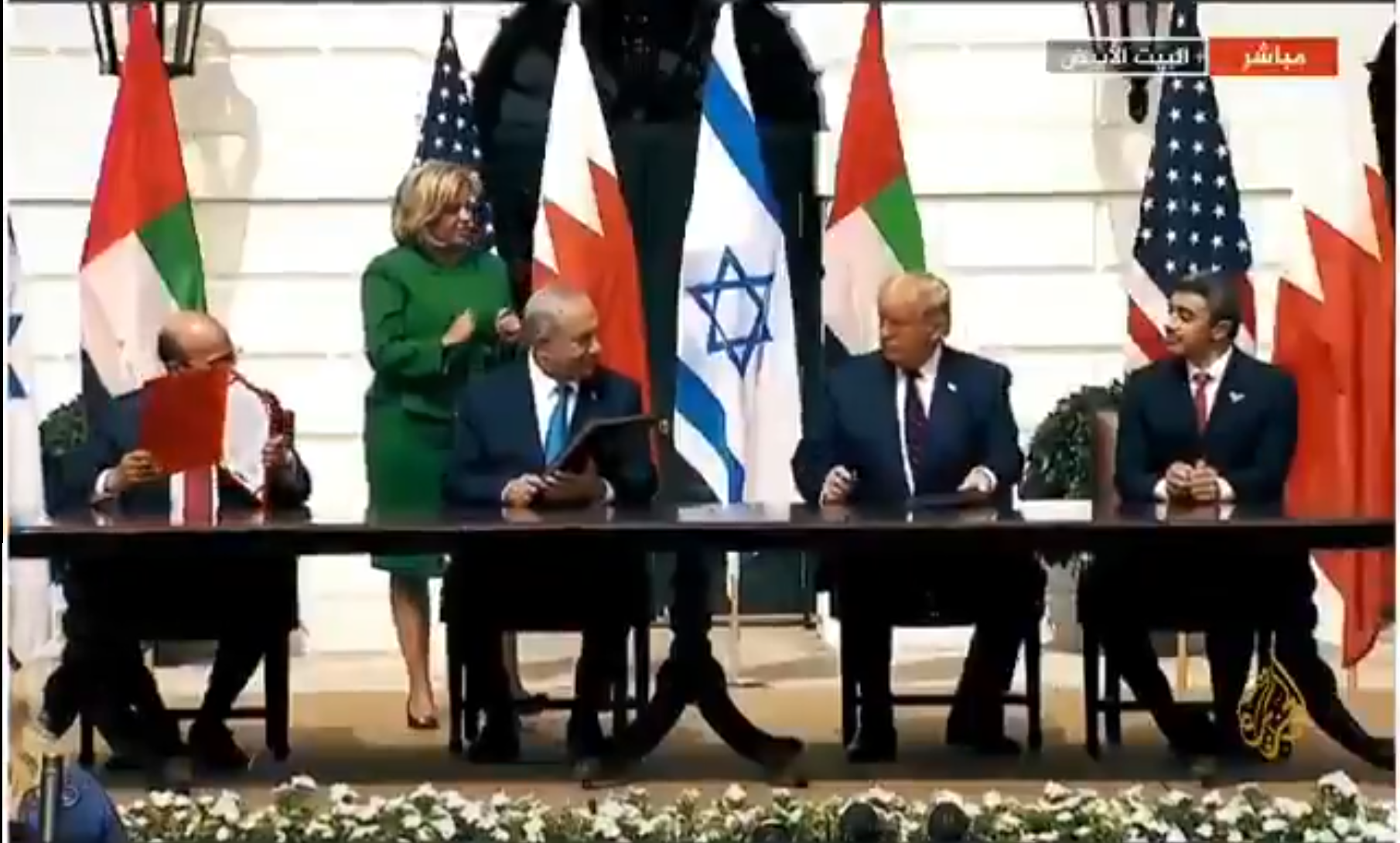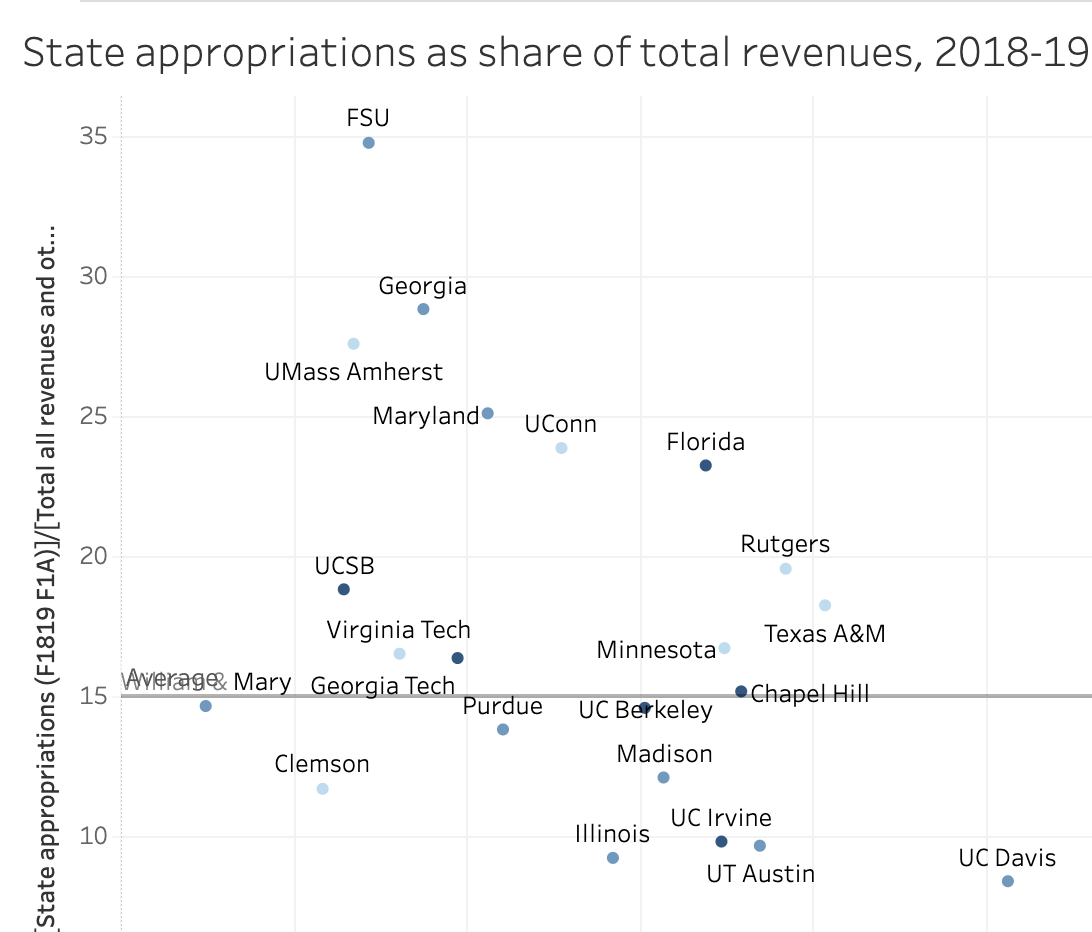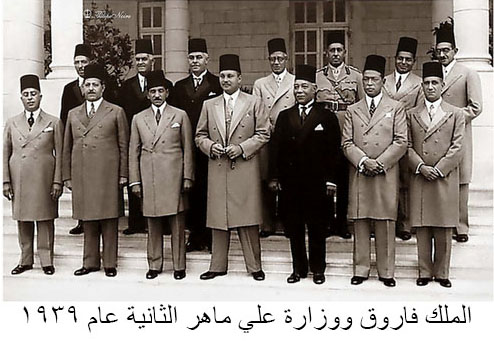
It’s the last days of the Tour. UAE, Bahrain, and Israel each sponsor a team. UAE’s team is doing well–its wunderkind Pogacar is in second place. Bahrain’s Landa has misfired again, and Israel has no results to mention.
#TdF2020 New look for stage 18 for @TamauPogi 😎 pic.twitter.com/UNmZXdufuC
— @UAE-TeamEmirates (@TeamEmiratesUAE) September 17, 2020
Meanwhile, in DC, the 3 states signed a diplomatic accord to great ballyhoo. What does this treaty and this race mean for these states? What does it mean for everyday sports and peace fans like us?
Short answer: Countries are advertising campaigns that exist in community and competition with other brands. Israel, Bahrain, and UAE would prefer us to think they are only their image. We should mistrust their slogans and judge these brands by their works.
Of course, countries are not mere slogans. Israel, for example, is the complex product of a century of anti-semitism, mass murder, political contest, economic experimentation, technology, colonialism, migration, etc etc. None of this is mere words. Just ask a Palestinian.
In recent years, however, it has suited Israel’s promoters to treat Israel as a slogan. Slogans don’t abide investigation or questioning. Objections can be dismissed summarily and categorically.
Embracing the facade also helps Israel to find “friends.” UAE and Bahrain exemplify the kind of branding some want: a sunny, wealthy, globalized veneer conceals autocracy, violence, and rights differentiated by caste. Don’t look behind the curtain!
This is the pageant we saw in DC: states with few historic or existing ties in a ritual with few genuine consequences for their citizens. There’s certainly scarce domestic need for these agreements. Away from the bright lights, non-citizens continue to suffer in the shadows.
Israel’s intransigence in the face of criticism is no doubt a model and an inspiration for Bahrain and UAE. International scrutiny is a disaster for these authoritarian regimes. There are plenty of reasons to boycott them. (All this is even more true of Saudi Arabia.)
But now you are asking: what does all this have to do with bike racing? Glad we are getting to the heart of the matter. For me, bike racing is like laws and sausages: a shiny casing concealing ground tough flesh.
Cycling teams are commodities, racers are billboards. Some French, Italian, and Spanish teams have a national tint. But for the most part teams promote commercial sponsors. Often, this means identifying with industrial adhesives or flooring products.
Fabian Cancellara 2001 @Mapei. pic.twitter.com/wxN0gtwHoM
— Bisiklet Sporu (@BisikletSporu) April 24, 2013
Sometimes the promotion is a national commodity. Cafe de Colombia was a thrilling presence in the mid 1980s. US Postal Service paid Armstrong in the late 1990s.
¿Por qué en Colombia salen ciclistas competitivos hasta debajo de las piedras? https://t.co/0hPBL7wDv6 #ciclismo
— Ciclismo Internacional (@CiclismoInter) March 31, 2020
Por Óscar Trujillo Marín pic.twitter.com/NRgFWb59IE
Sometimes the nation is the commodity to be promoted. Astana, a top-tier team since 2007, is the best example. Vinokourov, a spectacular racer from Kazakhstan, used his connections with the regime to win rich sponsorship for a monumental team.
A Vinokurov hands Kazakhstan's Head of State the Yellow Jersey from last year's championship Tour de France - pic.twitter.com/9lc6v4UzcW
— Astana Qazaqstan Team (@AstanaQazTeam) January 27, 2015
There are a lot of strong Kazakh cyclists, but Astana also hired superstars like Contador, Armstrong, Nibali. Like the purpose-built capital for which it is named, the team’s impressive facade is only imaginable in the context of essential flimsiness.
Some more images from today’s bike ride of Artyom Zakharov through the streets of Nur-Sultan, the capital of Kazakhstan 🇰🇿 #Kazakhstan #NurSultan #cycling #AstanaProTeam pic.twitter.com/abhf6vowOU
— Astana Qazaqstan Team (@AstanaQazTeam) May 28, 2020
Bike racing is always happy to rent its promotional services to grifters. Bernard Tapie is perhaps the most engrossing story, but the list is long: Donald Trump (remember the Tour de Trump?), Michael Ball, Oleg Tinkov.
Sportwashing is big business in the Gulf. If you’re going to host branches of the Louvre and fancy universities, you might as well have bike races as well. Qatar hosted a tour from 2002 to 2016, when it also hosted the world championships.
More recently, the Emirates and Oman began their own national Tours. The slate of early season stage races in the Gulf attract top riders in search of training miles, warm weather, flat roads (except in Oman), and luxury hotels. Oh, and camels.
2nd place..just awesome:D #AbuDhabiTour Lets go home camel, the season is over! pic.twitter.com/CfwdB1I1Tg
— Peter Sagan (@petosagan) October 11, 2015
In 2017, both Bahrain and UAE became title sponsors of UCI World Tour teams. Bahrain was a new team, while UAE took over the formation previously sponsored by Lampre. Both teams look–pardon me for saying–like mercenary operations. Neither has a Vinokourov figure.
Frankly, I can’t think to whom these sponsors are advertising. Middle-East-historian-bike-racing-fans like me? Emirates Airlines, which sponsors soccer, has a product to sell. Bahrain and UAE are brands too, but it’s not clear who’s buying.
Now Israel has joining the cycling party. In 2020, “Israel Startup Nation” took over the World Tour license previously held by the Russian Katusha team. It’s not been a good Tour de France for the team. 2021 will be different, though.
Israel Startup Nation has signed quadruple Tour champion Chris Froome, along with a bevy of other top riders, for next season. (Froome currently rides for a team sponsored by climate change boosters Ineos). They should do well.
Behind the team is Canadian-born impresario Sylvan Adams. Adams, an enthusiastic racer himself. He inherited Quebec property corporation Iberville and ran it with great success. In 2015, he founded the Israel team, moving it up through the ranks.
In 2018, Adams paid to bring the Giro d’Italia start to Israel. Hosting this international sporting event was a major publicity coup in an era of boycotts. Press junkets are a strength for Israel, but a few doubting voices got through.
For the most part, though, the Giro start and the Israel Startup Team succeed in transmitting a reassuring message of tourism, health, environmentalism, and general apolitical wholesomeness. Also, peace (TM)!
Bike racing is thoroughly imbued with crass capitalism. Decades of scandals have inured fans to controversy. It is thus an ideal environment for outsider states to perform a pantomime of normalcy. Not unlike the South Lawn of the White House!
But now you must be wondering: why no Saudi team at the Tour de France? Right? Right? That’s a topic for another day.


